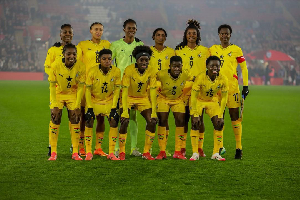Kumasi, Nov. 13, GNA- After one year of coming into force, only five cases have been recorded under the Whistle Blowers Act of 2006. The Serious Fraud Office (SFO) has handled one case while the Commission on Human Rights and Administrative Justice (CHRAJ) and the Office of Accountability has recorded two cases each. Experts say the trend is attributable not only to the novelty of the Act, but lack of awareness, the political and socio-cultural milieu in which it operates as well as other constraints associated with the Act.
This was contained in a paper presented by Dr Raymond Atuguba, a lecturer of the Faculty of Law of the University of Ghana, on the "Overview of the Act and its challenges and opportunities at a media dialogue in Kumasi on Monday. He defined Whistle blowing as the disclosure of a piece of information relating to some fraud or illegal and unethical conduct by an individual.
He told journalists attending the dialogue that the Act was promulgated among other things to fight corruption, which has been a social canker to ensure development and good governance in the country. The dialogue was jointly organised by the Ghana Anti-Corruption Coalition (GACC) and the Ghana Journalist Association (GJA) and was aimed at raising awareness among media practitioners as well as creating a platform for journalists to make inputs and to propose issues that need to be taken into consideration in any future amendment of the Act. Dr Atuguba said the Act, which identified 18 institutions including individuals to whom such disclosures can be made, provided protection and reward to those who blew the lid off discreet acts of impropriety and any kind of wrong doing, only under certain three conditions including giving the information in good faith. He mentioned some of the 18 institutions as; Family Heads, Recognised religious Bodies, Ministers of State, Office of the President and CHRAJ among others and regretted that people have shied away from whistle blowing because of either ignorance or certain flaws in the Act, which did not assure the Whistle Blower of maximum protection. He urged the media to create awareness about the Act especially in the rural areas to enable people to fell emboldened to report such cases to the appropriate places despite the fact that certain traditions of the land do not encourage giving out wrongdoers. Mr. Kwesi Jonah, Senior lecturer of the Department of political science of the University of Ghana said the media have great responsibility in disseminating information about the contents of the Act to the understanding of the people.
He said the GJA as a watchdog of society should play positive roles in sensitizing people about the act to ensure its effective implementation in fighting against corruption.
Mr Bright Blewu, GJA General Secretary on his part said the Association is part of the GACC and hoped that efforts would be made to educate society to weed out corruption in the country. Mrs Florence Dennis, Executive Secretary of the GACC said since 2001 GACC has been actively involved in sensitizing the people on the dangers associated with corruption like under development and poverty. She stressed the need for GJA and other civil society organizations to support the Coalition in its efforts of fighting corruption to ensure development and good governance.
General News of Tuesday, 13 November 2007
Source: GNA












